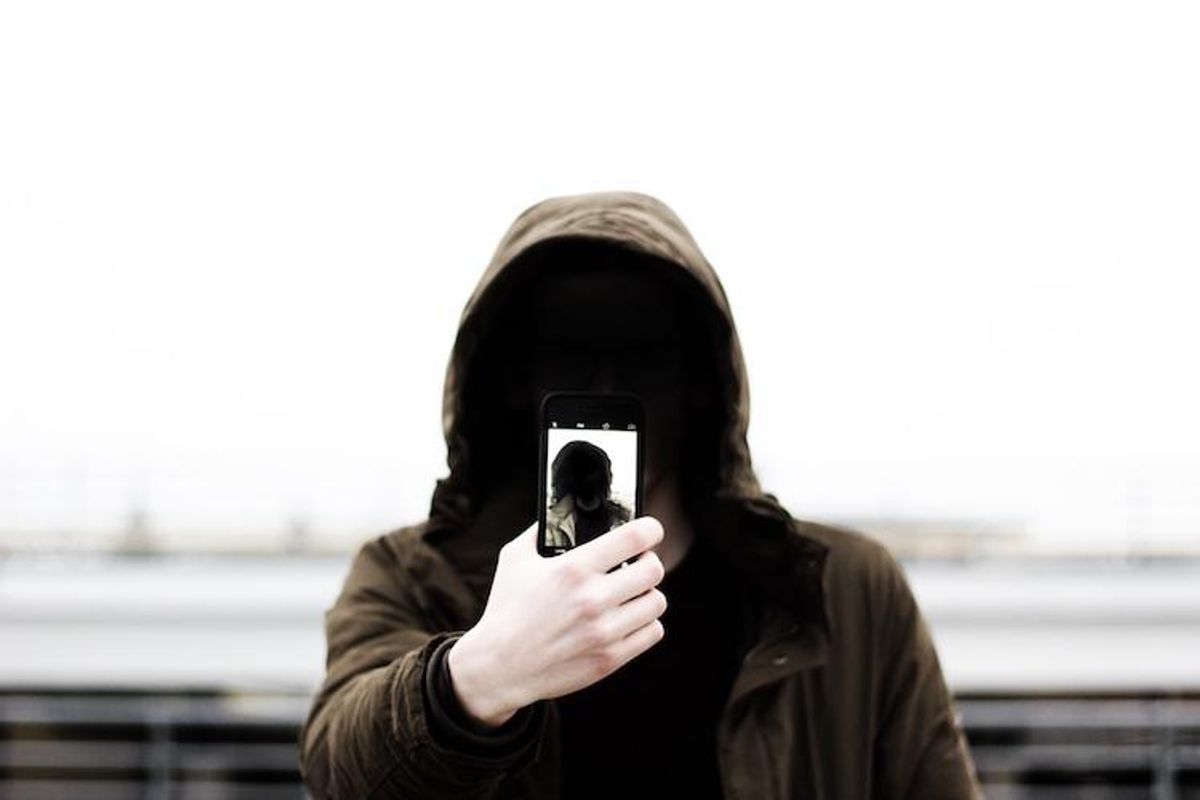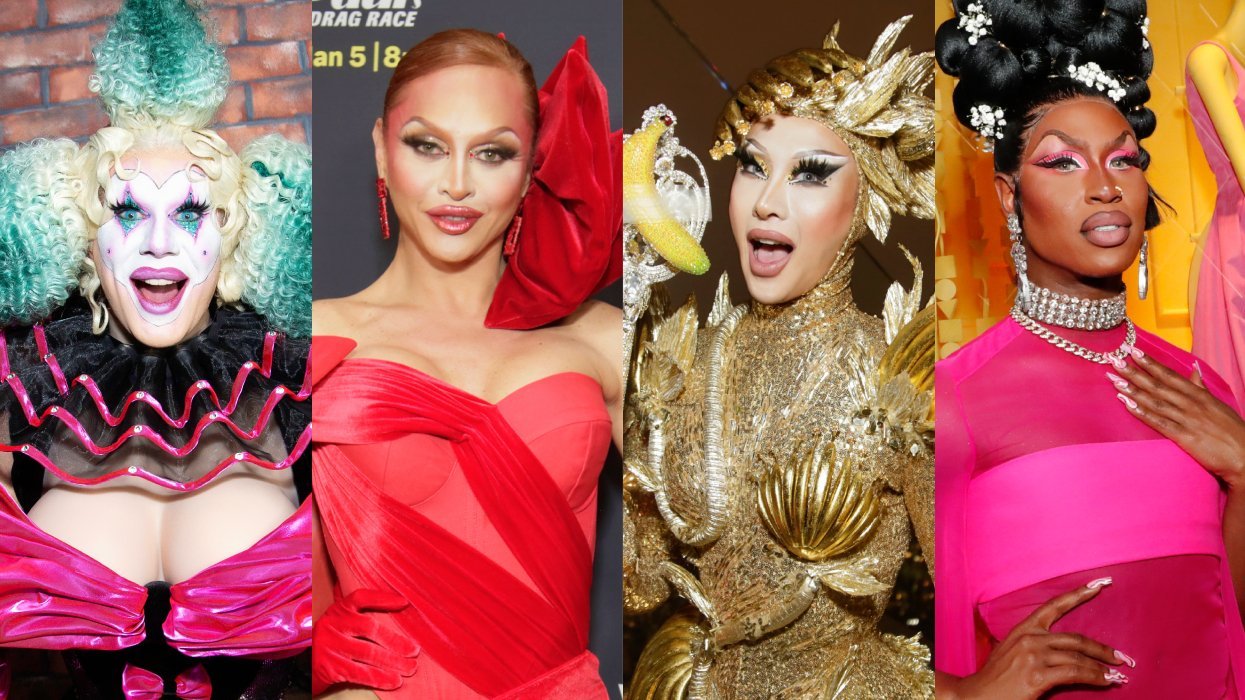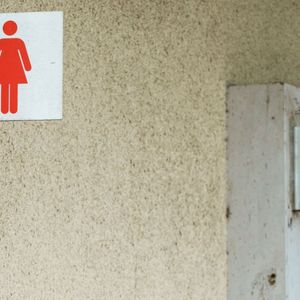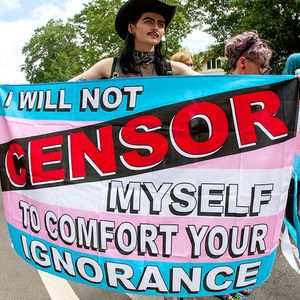"I'm HIV+ and I like to infect young guys." These were the words Bob saw when looking at "his" profile on Scruff, the popular dating app for gay and bi men. Bob's picture, his stats, even his employment details were all there for anyone else on the app to discover. Except this wasn't Bob's profile; it was a fake one set up by someone who wanted users to know he was HIV-positive, as well as make some other dangerous, untrue statements.
Unfortunately, Bob's experience isn't an isolated one. Apps like Scruff, Grindr, and Hornet are still a bit of a digital frontier land for the gay, bi, and trans people who use them. While Facebook seems almost obsessed with policing queer profiles and demanding the use of real names and proof of identity, the often after-dark world of hookup apps is, by contrast, a lawless wilderness.
One HIV-positive man we spoke to discovered that someone had set up a fake Grindr profile, using his pics, identifying him by name, and disclosing his HIV-positive status. Not only was this person not public with his HIV status, he wasn't even on Grindr. What followed was a convoluted, stressful episode in which he had to learn to navigate the app and attempt to report the profile. The whole process lasted weeks and resulted in him moving to another city, such was the anxiety around having his HIV status disclosed without his consent. (We approached Grindr multiple times through its PR agency, but it declined to comment.)
His anxiety is perfectly justifiable. This is an era in which police and health department officials are trawling apps like Grindr to build cases against (and in some instances entrap) HIV-positive people to charge them with infecting or exposing others to HIV. While we continue to be criminalized, the actions of these impersonators aren't just cruel; they are downright dangerous.
There are several reasons someone might set up these fake profiles. None of them are warranted, and in no instance should you feel responsible for causing someone to do something as potentially harmful as impersonate you and disclose your HIV status without your permission. Still, here are the most likely culprits.
The personal connection. This is often the most common offender: a disgruntled former lover, someone you have engaged with on the apps, or perhaps someone in the community you know or have interacted with. While you may prefer to think the sort of person who'd do something like this is a homophobic/transphobic/serophobic loner who selected you at random, it's rarely the case. One man named Caleb believes he was targeted by someone he had previously rejected online. In this instance, the fake profile misrepresented his status, identifying Caleb as HIV-positive (Caleb is negative) on both Grindr and Scruff. He discovered the fake profile after a late-night phone call from one of his sexual partners, who was "really distressed and angry" that Caleb had lied to him about his HIV status. He hadn't. After talking his partner off the ledge, Caleb jumped online to set up a second profile to track down his impostor and report him. "Fake" Caleb had blocked Caleb's real profile, a common occurrence. Based on the info displayed, Caleb suspected the person responsible was someone he'd interacted with recently and who himself was HIV-positive. Caleb managed to get the profile taken down after reporting it to Grindr, and he is now trying to reach out to the person responsible to let him know that his actions were hurtful.
The gay troll. He isn't a monster that lives under a bridge condo-style with Scandinavian furniture.
Rather, like the more common straight troll, the gay troll hangs out in digital spaces and goes out of his way to make life difficult for others. If you're an HIV-positive guy, a PrEP user, a gay or bi man of color, or otherwise seen as a target, you can find yourself being trolled. The sad truth is that many trolls setting up these fake profiles come from the gay and bi community.
The moral entrepreneur. This is the most bewildering version of the fake app profile maker. A moral entrepreneur is a person who takes it upon himself to do good for the community, by any means necessary. When it comes to gay or bi men and HIV, these moral entrepreneurs are the first to let you know someone else's HIV status "just so you have all the information." They are gossips so terrified of our shared HIV reality as gay men that they project their insecurities onto others. The moral entrepreneur has been with us since long before the apps. These are the guys who would pull you aside at a club to "warn" you that the guy you were just dancing with is HIV-positive. The message to send to moral entrepreneurs is a simple one: You're not helping anyone, and you are harming all of us. Get off your high horse, lest you fall and break your damn neck.
There are a few things you can do if you discover someone impersonating you online and disclosing your HIV status. If you also use the app and can view the profile, you can report it. If you have friends who use the app and you're comfortable sharing your HIV status with them, they can do the same and help escalate the case in the app's review queue. If you're not comfortable doing this, you can also report an impostor profile via the apps' websites. Try to gather as much info as possible when you report them, including screenshots and profile names, and do it as quickly as possible. You may need to upload a photo of yourself holding verifying information like an email address.
In some cases, the profile can be removed quickly. Caleb's impostor was removed within a few days, and that lag was mainly due to time-zone differences. Other examples dragged on for weeks and failed to properly address the issue, given the severity of the impersonations.
This is partly why gay apps feel so lawless. The forced disclosure of one's HIV status can result in discrimination, violence, unemployment, or criminalization. When gay apps leverage their HIV-friendly options as a selling point for their services (Hornet's "Blue Ribbon Boys" and the noise Scruff and others make about celebrating expanded status options like "On PrEP" and "Undetectable"), they also need to develop policies that protect people from those who abuse these options to intimidate us.
Like what you see here? Subscribe and be the first to receive the latest issue of Out. Subscribe to print here and receive a complimentary digital subscription.




















































































